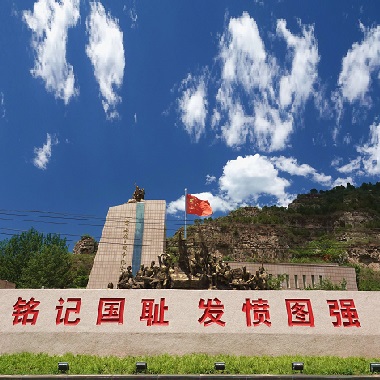Pingxi Anti-Japanese War Memorial Hall

-
Type:
History
Description
Pingxi Anti-Japanese War Memorial Hall
The Pingxi Anti-Japanese War Memorial Hall has a building area of 4,350 square meters and an exhibition area of 2,500 square meters. Constructed in 1992 and expanded in August 2005, the memorial hall has become a patriotic education base encompassing the memorial hall, the Pingxi Anti-Japanese Martyrs Cemetery, the Pingxi Unknown Martyrs Cemetery, and the Pingxi Martyrs Cemetery. It is a national key protected site for martyrs' memorial buildings.
The hall's exhibits are organized into...
Pingxi Anti-Japanese War Memorial Hall
The Pingxi Anti-Japanese War Memorial Hall has a building area of 4,350 square meters and an exhibition area of 2,500 square meters. Constructed in 1992 and expanded in August 2005, the memorial hall has become a patriotic education base encompassing the memorial hall, the Pingxi Anti-Japanese Martyrs Cemetery, the Pingxi Unknown Martyrs Cemetery, and the Pingxi Martyrs Cemetery. It is a national key protected site for martyrs' memorial buildings.
The hall's exhibits are organized into seven sections: "The Party's Leadership in the Pingxi Anti-Japanese War," "The Creation and Development of the Pingxi Anti-Japanese Base," "The Atrocities of the Japanese Invaders," and others. More than 3,000 precious historical artifacts, including objects, manuscripts, and photographs, are on display. The exhibition presents the national war situation and the establishment of the Jin-Cha-Ji Anti-Japanese Base from various perspectives and angles.
Pingxi, named for its location west of Beiping, primarily includes the regions of Fangshan, Laishui, Yixian, and Mentougou. It served as an important corridor connecting the enemy-occupied areas with the Jin-Cha-Ji Border Region.